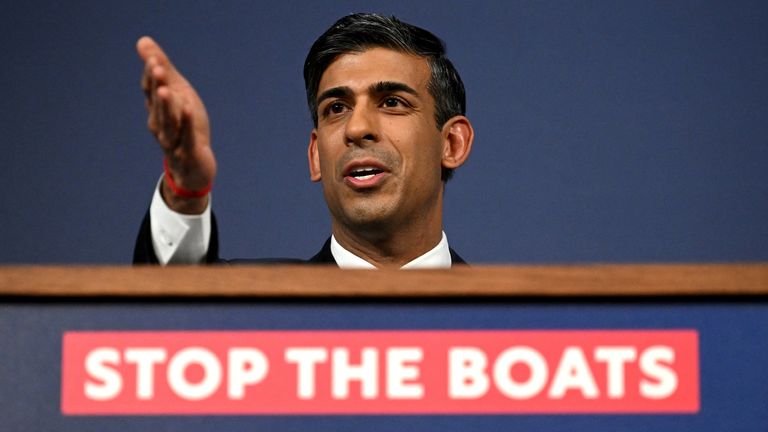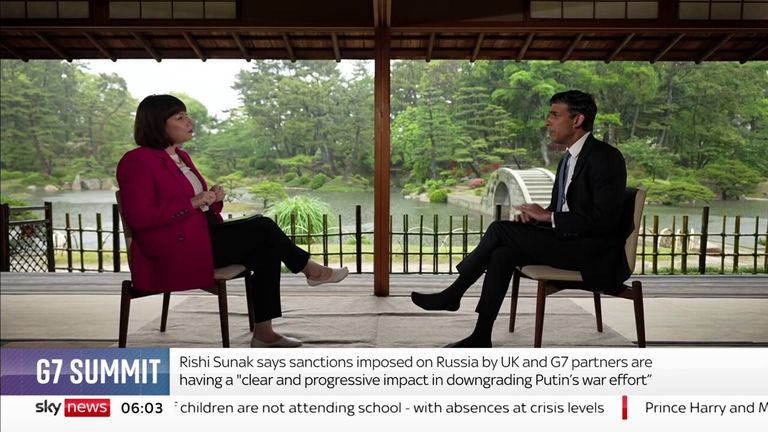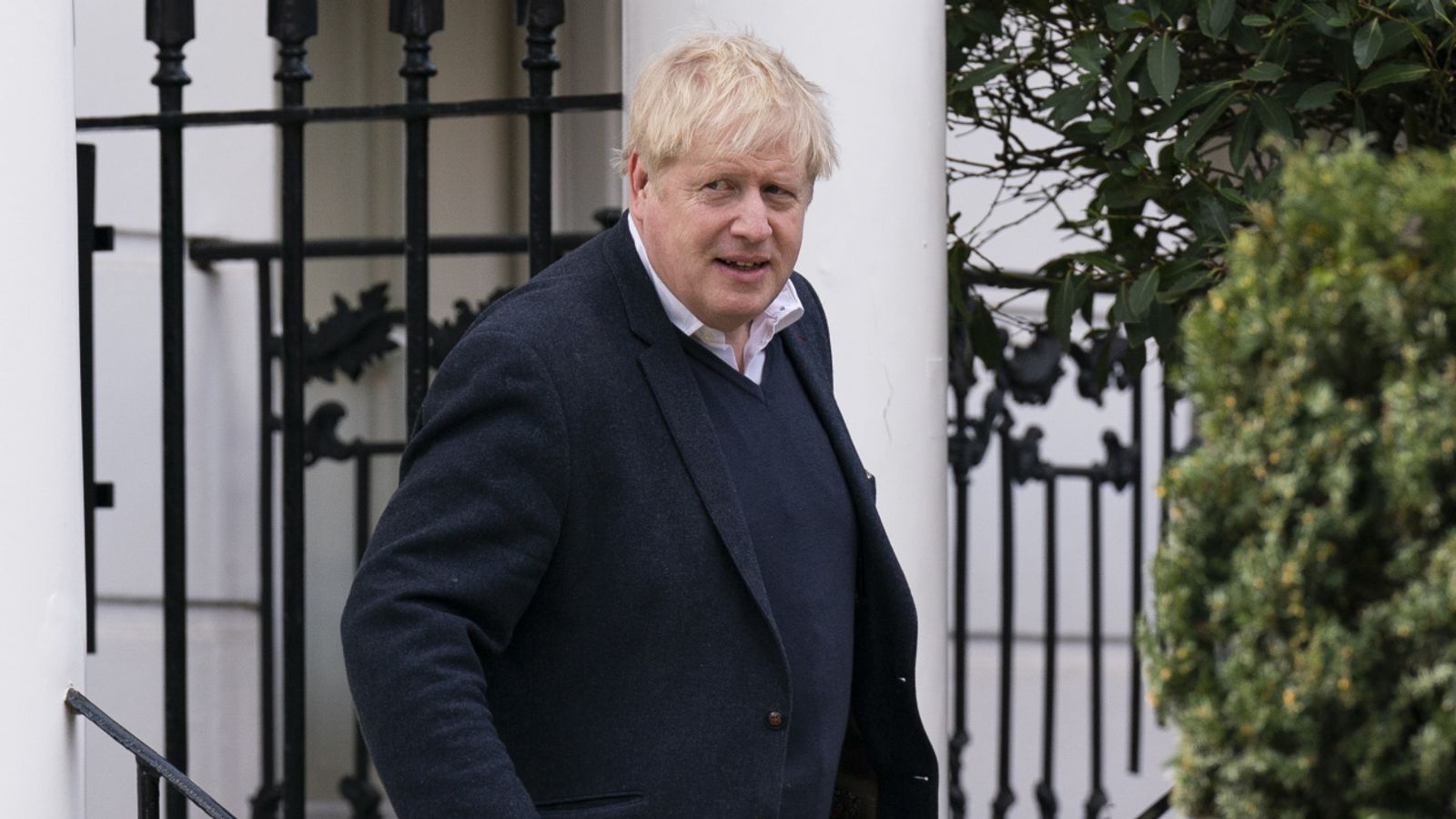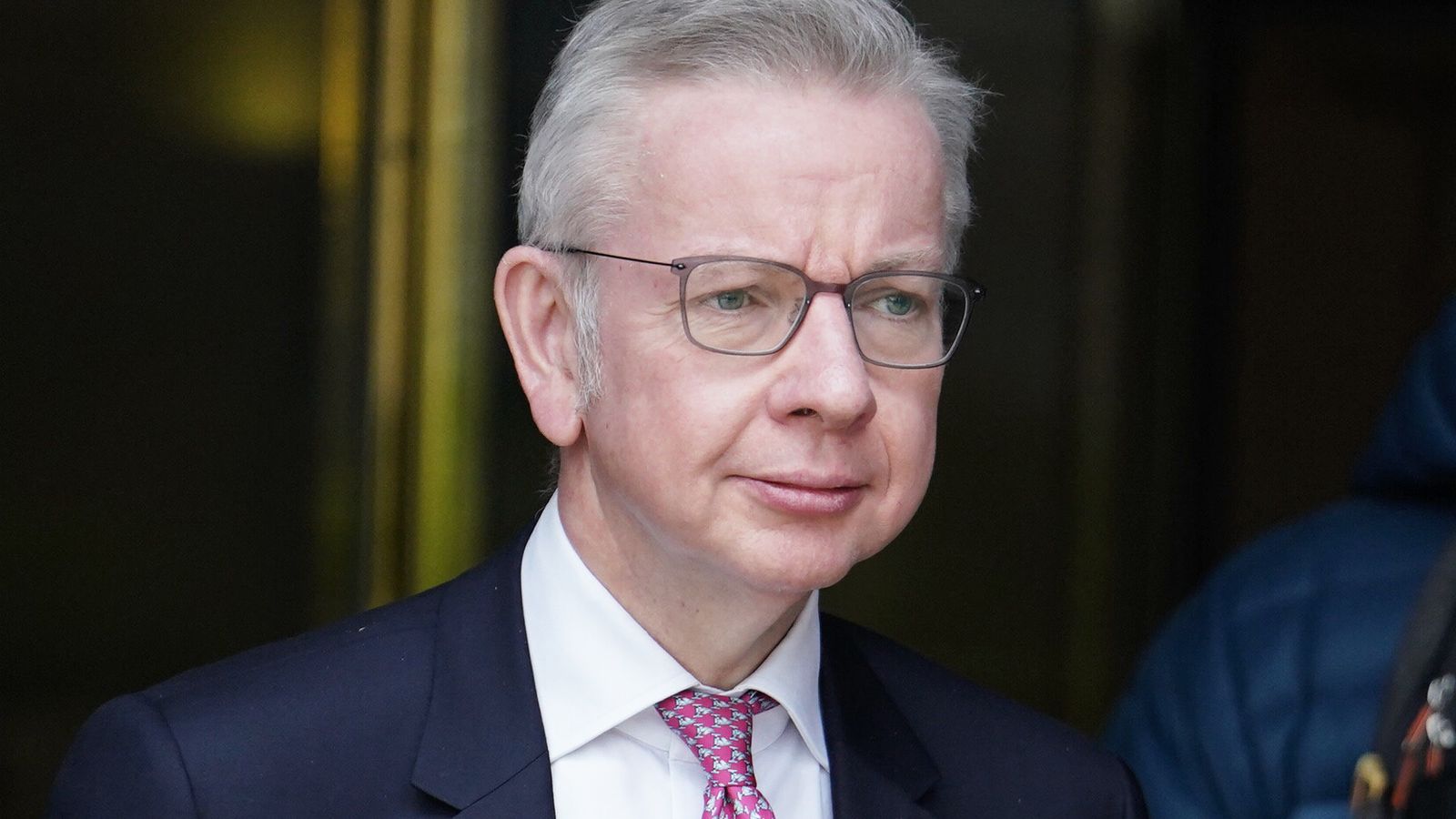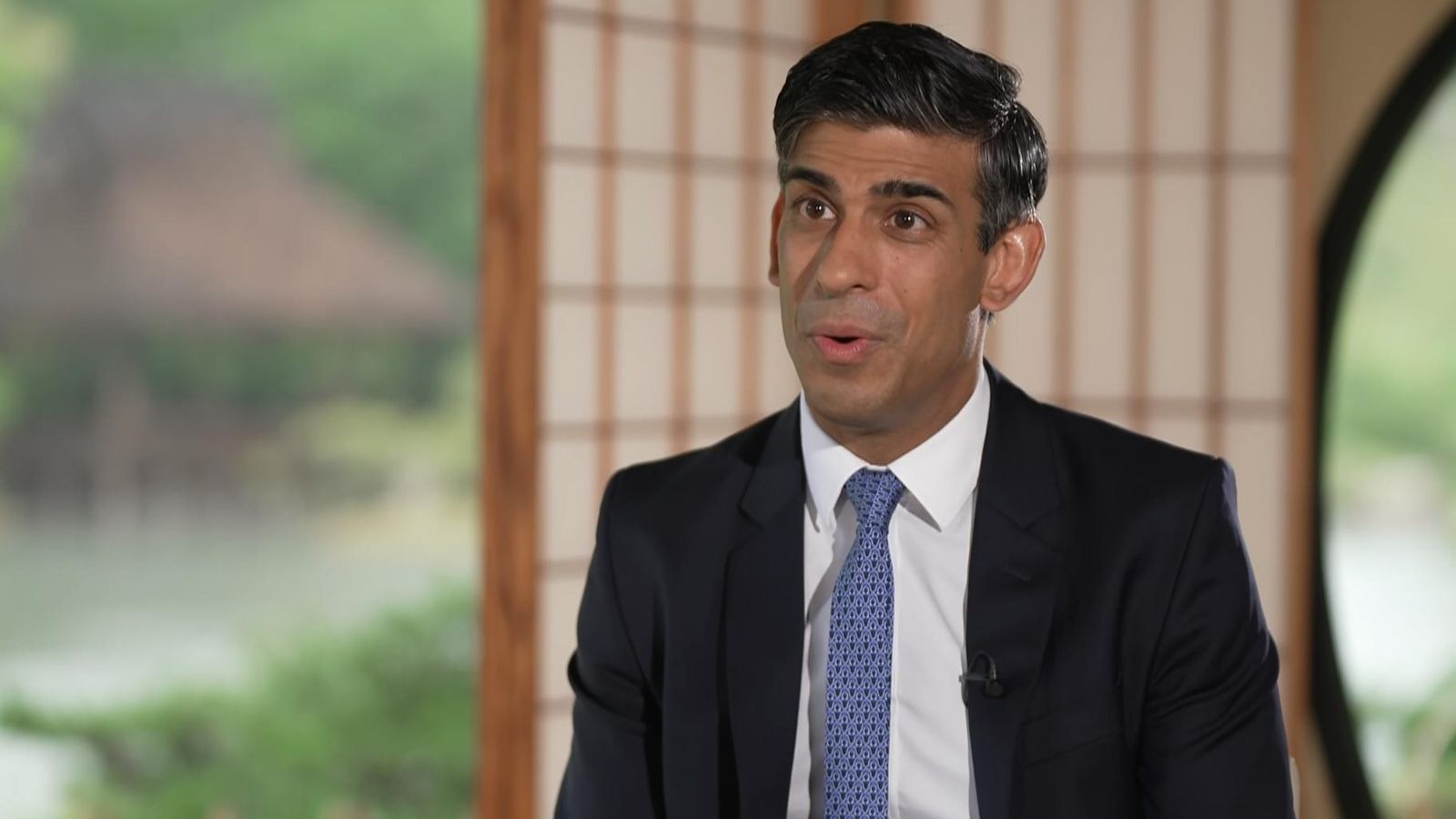Outrage over massive migration increase is muted but muddled government take really matters | Politics News
We need to talk about migration.
Or do we?
For many years, it seemed like we spoke about little else.
Then – somewhere around 2016 – polling seemed to show attitudes shifting and softening.
That’s not to say presiding over a massive increase in migration – as appears to be taking place now – is a popular move for the government.
The data is clear that most people think migration is too high and want ministers to bring it down.
But it’s also noticeable that while small boat crossings have cut through with voters, the current record level of legal migration has not been met with anywhere near the amount of outrage that you might have expected just a decade ago.
Question stumps Rishi Sunak in Sky News interview – politics latest
Among Tory MPs too, there has been a degree of agitation from the right of the party – but the concern is not nearly as widespread as it has been for illegal migration.
The prime minister’s explanation for recent increases is global factors.
On that, he does have a point.
That’s because the rise is largely being driven by events in Ukraine and Hong Kong as well as students (who potentially delayed travel because of COVID restrictions) and skilled workers (especially NHS staff).
So for now anyway, the government can just about maintain that it has control of what’s going on.
This doesn’t mean Rishi Sunak is on safe political territory though.
The first risk for the prime minister is next week’s migration data being so high it forces the issue up the public and political agenda again and leads to a perception that the government has either lost control or doesn’t care about having control.
On this, it’s likely the peaks we are currently seeing will eventually drop as the numbers of people coming from Ukraine and Hong Kong tail off and some of the larger-than-normal groups of students who moved here after COVID leave the country.
But there’s also political peril in the longer-term outlook.
In March, the government’s own forecaster – the Office for Budget Responsibility – estimated that net migration will stabilise at around 245,000 from 2026-2027.
The OBR clearly doesn’t set policy, but the forecast shows that even baseline assumptions are higher than the 2019 level that the Tories at the time promised to cut.
And it’s in a different ballpark to the David Cameron-era pledge of getting numbers down to the tens of thousands.
Quite aside from the straightforward risk of electoral damage that may be done by a party breaking manifesto pledges and letting numbers rise, there is perhaps a more deep-seated danger here that speaks to how migration is being handled as a modern policy issue.
On one level – can sustained migration at a higher than previously expected rate be politically justified when you have an overloaded NHS, stretched public services and a shortage of housing?
And on another – is the government saying that increasing migration – even in the short term – is part of their solution to NHS staffing shortages, broader job vacancies and sluggish growth?
Read more:
Sunak vows to bring net migration below level he ‘inherited’
PM : I’ll win the next election and stay on in Number 10
Home Secretary Suella Braverman seems to have a clear-eyed answer to these questions, even if her position appears – in part anyway – distinctly unrealistic.
The broader government take is more muddled though, with other cabinet ministers talking up the economic and educational benefits of more migration.
This all really matters.
As others have noted, the long tail of border decisions made by Tony Blair arguably set the stage for the Brexit vote.
You may think we don’t need to talk about migration.
But the cabinet probably should.
